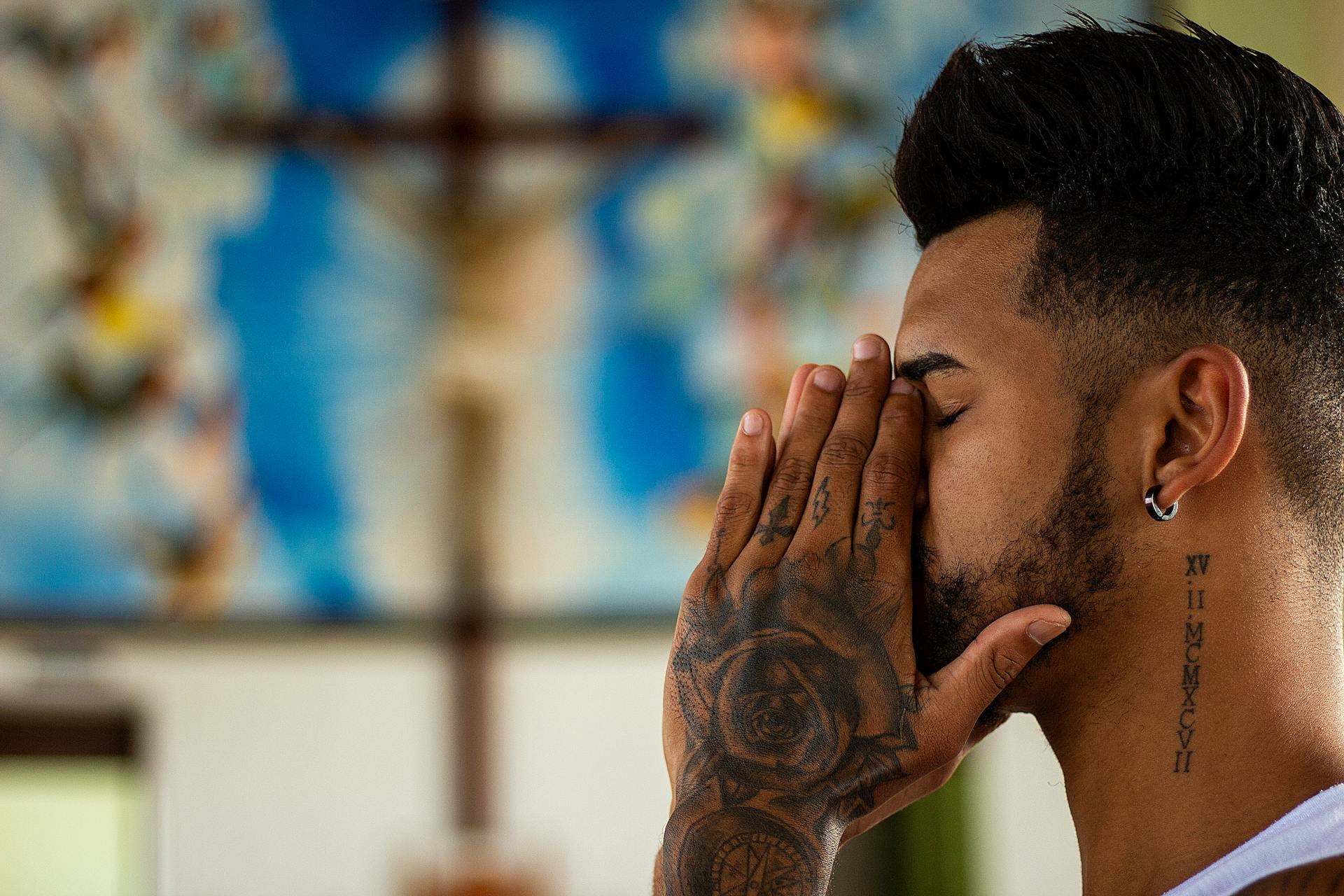There are different ways of praying in the spiritual life. The task is to learn about these different ways and see which ones resonate in our hearts.
Among the ways of prayer, the Catechism of the Catholic Church highlights and teaches about vocal prayer. It can be awkward for some to give audible expression to our prayer, but it is a form of prayer that is deeply embedded in our spiritual tradition and highlight favored by the spiritual masters.
Since we are body and soul, our prayer should engage our senses, especially our ability to speak and hear. The Catechism teaches: “The need to involve the senses in interior prayer corresponds to a requirement of our human nature. We are body and spirit, and we experience the need to translate our feelings externally. We must pray with our whole being to give all power possible to our supplication.”
We are not zombies or robots. We are human beings, fearfully and wonderfully made, as the Book of Psalms tells us. As human beings, we have feelings and need to express them. We cry out, shout, sing, lament, announce, and proclaim. We cannot bottle up our experiences of God. They push and demand to be expressed, and one of the ways they’re expressed is through vocal prayer.
In addition to our own human design and needs, vocal prayer is also a response to the call of God. The Catechism explains: “This need [of vocal prayer] also corresponds to a divine requirement. God seeks worshippers in Spirit and in Truth, and consequently living prayer that rises from the depths of the soul. He also wants the external expression that associates the body with interior prayer, for it renders him that perfect homage which is his due.”
As uncomfortable as it might be for some, there are times in which God summons the people who love him to give vocal manifestation to their prayer. When this is done, our prayer is given from the fullness of who we are. With vocal prayer, our bodies and souls are united in speaking to God. It is a very human thing to offer our prayers out loud to God.
While vocal prayer can be very personal, calling out to God in our rooms, it also lends itself to group prayer. In vocal prayer, fellow believers can speak from the heart in the midst of others. In such a moment of prayer, believers can also benefit from hearing and joining in the prayers for others.
The Catechism notes: “Because it is external and so thoroughly human, vocal prayer is the form of prayer most readily accessible to groups.”
While many Christians, especially those in pluralistic societies, might shy away from vocal prayer, it is closely connected to mental prayer. Our mental prayer enriches and raises up the prayers we offer to God internally.
The two – external and internal – walk together. As human beings, we cannot separate our mental prayer from vocal prayer, or vice versa. The two mutually nourishes and elevates the other.
The Catechism points out: “Even interior prayer, however, cannot neglect vocal prayer. Prayer is internalized to the extent that we become aware of him ‘to whom we speak;’ thus vocal prayer becomes an initial form of contemplative prayer.”
In the spiritual life, we cannot go deeper into mental prayer without vocal prayer. There is no contemplative prayer without vocal prayer.
For many people, this connection appears to be a contradiction. Our internal prayer, the prayer that is offered in the secret place of our hearts – matures and flourishes through vocal prayer. The hidden parts of our heart cannot grow unless they are manifested audibly. The heart must cry out.
In a similar way, our vocal prayer is anchored and sustained by our mental prayer. If we only pray vocally, we run the risk of becoming a Pharisee and mumbling prayers that mean nothing to us or God. It is easy to become a parrot and take on the appearance of a person of prayer.
The real work of truly being a person of prayer is much harder and demands both internal and vocal prayer. As we seek to encounter God and draw closer to him, we have to be willing to cry out to him, give him a joyful shout, and sing a joyful hymn to him.
For free daily reflections by Father Jeff Kirby, please visit DailyDiscipleship.org.















